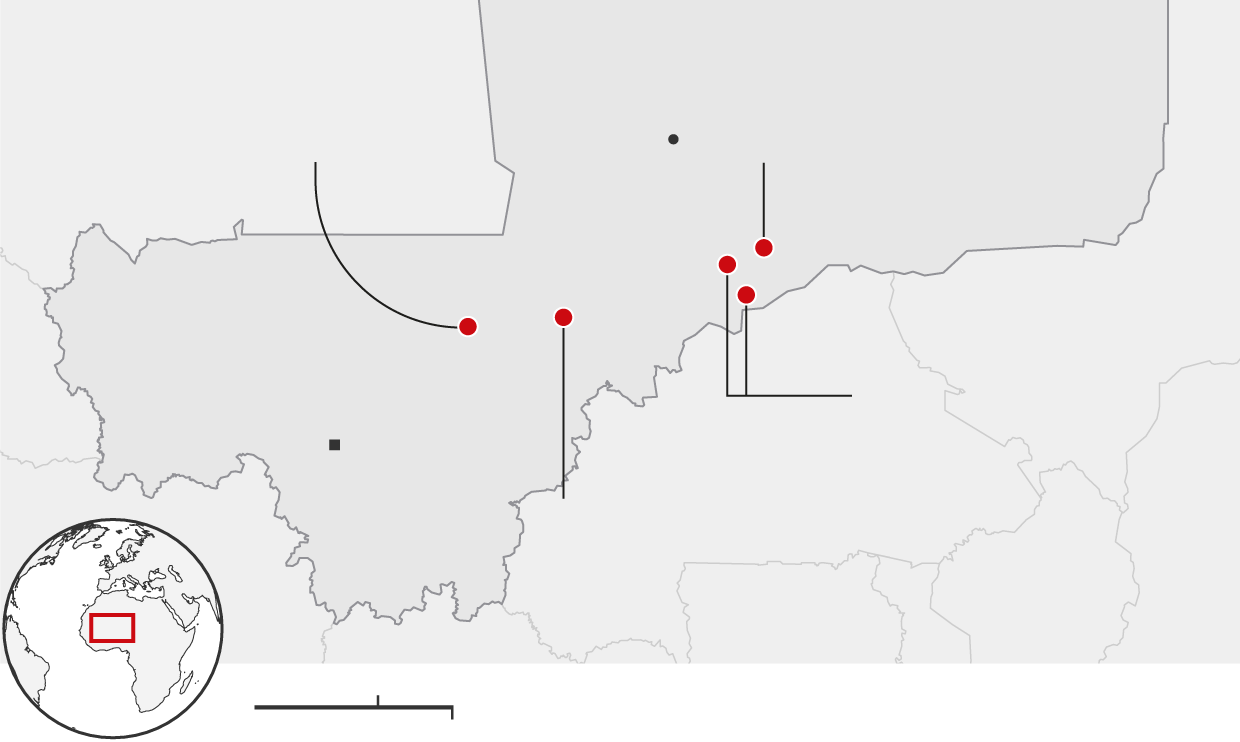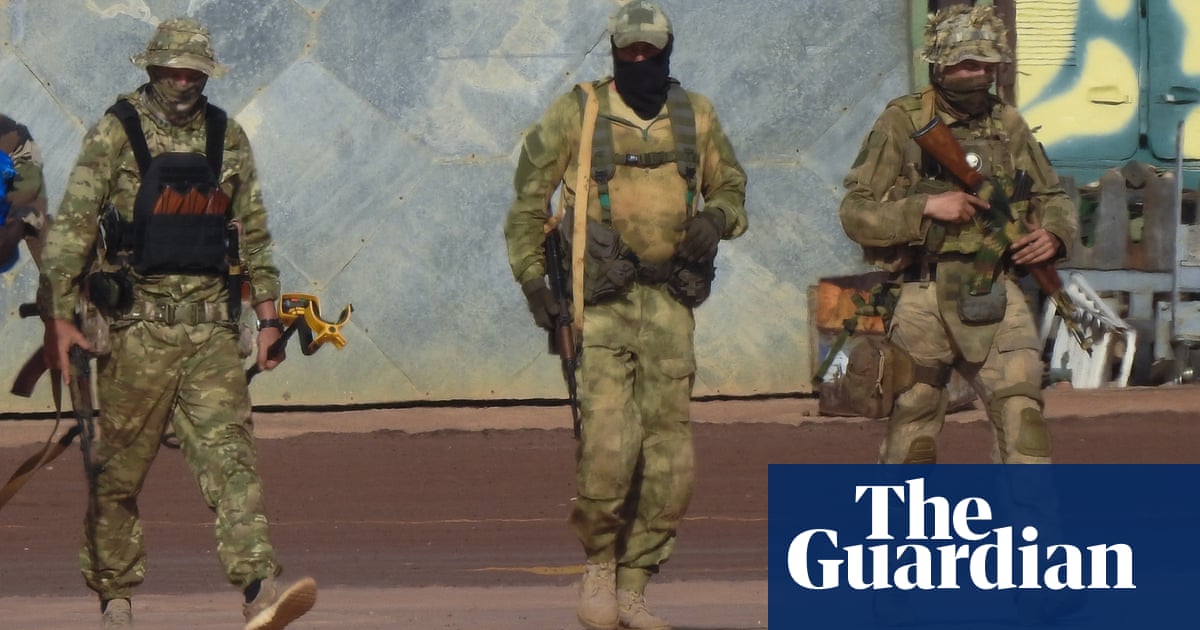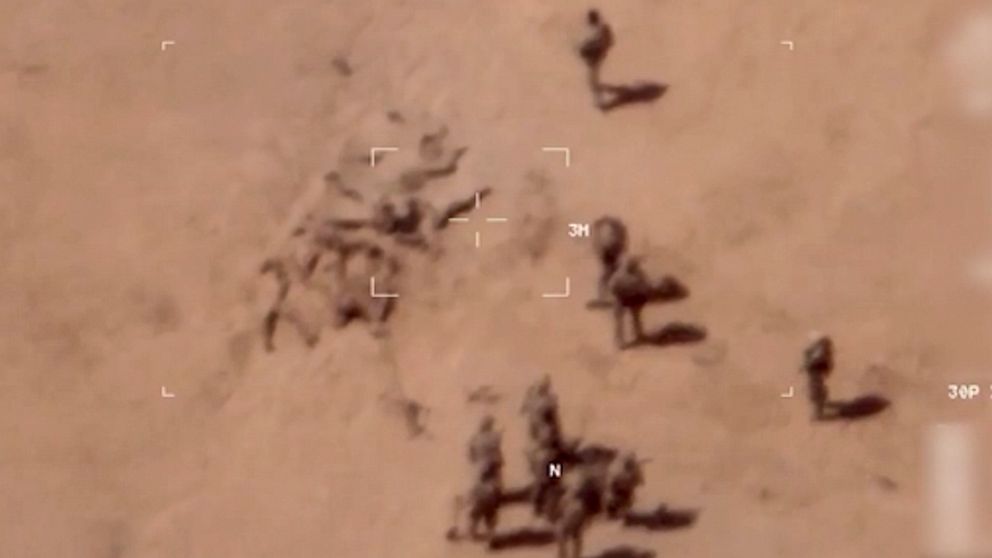Mali's ruling junta announced on Monday it was breaking off from its defence accords with former colonial ruler France, condemning "flagrant violations" of its national sovereignty by the French troops there.
The announcement -- threatened several times over the past few weeks -- was the latest confirmation of deteriorating relations between the junta in Mali and France.
"For some time now, the government of the Republic of Mali notes with regret a profound deterioration in military cooperation with France," spokesman Colonel Abdoulaye Maiga said in a televised statement.
Maiga cited multiple instances of French forces having violated the country's airspace.
He referred to the June 2021 decision by France to end joint operations with Malian forces.
And he mentioned France's decision taken in February to pull out its troops from Mali.
The Malian authorities said they had informed Paris of the decision on Monday afternoon.
France has not so far issued an official reaction to the junta's announcement.
- Growing tensions -
Tensions between France and the junta in Mali, which seized power in August 2020, had been rising for some time.
The agreements Mali has ended were those that set the framework for France's intervention in Mali in 2014.
They were signed a year after French troops deployed a large force to help Mali's armed forces stop a jihadist offensive there.
France's relationship with Mali cooled as the junta resisted international pressure to set a timetable for a swift return to democratic, civilian rule.
Paris has also objected to the regime's rapprochement with the Kremlin.
Both France and the United States have accused mercenaries from the Kremlin-linked security firm Wagner of deploying in Mali, where the junta claims the Russians are just military instructors helping to restore order.
Vast swathes of Mali lie beyond government control because of the jihadist insurgency, which began in 2012 before spreading three years later to neighbouring Burkina Faso and Niger.
The military junta seized power in the impoverished and landlocked Sahel state following protests over the government's handling of the war against the jihadists.
The conflict led to thousands of military and civilian deaths and forced hundreds of thousands of people to flee their homes.
The junta initially promised to restore civilian rule, but it failed to meet an earlier commitment to West African bloc ECOWAS to hold elections in February this year, prompting regional sanctions.
On Sunday, UN Secretary-General Antonio Guterres called for a swift return to civilian rule in Mali, Guinea and Burkina Faso, all currently ruled by military regimes.
Install the app
How to install the app on iOS
Follow along with the video below to see how to install our site as a web app on your home screen.
Note: This feature may not be available in some browsers.
You are using an out of date browser. It may not display this or other websites correctly.
You should upgrade or use an alternative browser.
You should upgrade or use an alternative browser.
Mali
- Viestiketjun aloittaja Tvälups
- Aloitus PVM

Russian mercenaries in Africa have been linked to massacres in which several hundred civilians have died, raising new fears about the impact of Moscow’s intensifying interventions on the stability and security of countries across the continent.
Western officials have so far largely steered clear of naming the perpetrators of killings but witnesses, local community leaders, diplomats and local analysts blamed many of the deaths on fighters deployed by the Wagner Group, a network of private companies run by a close ally of Vladimir Putin.
The incidents have occurred in Mali, the strategic west African country where Wagner arrived last year after striking a deal with its new military rulers.
Internal Malian army documents seen by the Guardian reveal the presence of Wagner members - referred to as “Russian instructors” - on “mixed missions” with Malian soldiers and gendarmes during operations in which many civilians have been killed.
According to data compiled by the NGO Armed Conflict Location and Event Data Project (ACLED), as many as 456 civilians died in nine incidents involving Malian forces and Wagner between January and mid-April this year.

Russian mercenaries linked to civilian massacres in Mali
Exclusive: Internal Malian army documents show Wagner operatives took part in ‘mixed missions’
Mikfin70
Ylipäällikkö

French accuse Russian mercenaries of staging burials in Mali
The French military has released videos appearing to show Russian mercenaries burying bodies near an army base in northern Mali which it says is part of a smear campaign against the French who handed control of the base to Malian forces earlier this week
strelailija
Majuri
Näitä palkkasotilaita voisi hissunkissun metsästellä vaikka droneilla. Samahan se, missä ne henkensä heittävät ja kaikki on lännelle kotiinpäin. Eivätpähän ilmestyisi enää Ukrainaan Eurooppaan riehumaan.
Vääpeli
Greatest Leader
Saksa lopettaa Malissa.
Saksa aikoo lopettaa malilaisten sotilaiden kouluttamisen. Malissa on tällä hetkellä koulutustehtävissä noin 300saksalaissotilasta, taz-lehti uutisoi.
#saksa

TAZ.DE
Bundeswehr in der Sahelregion: Rückzug aus Mali eingeleitet
Pertti Rönkkö Havaintoja Saksanmaalta
10 t ·Saksa aikoo lopettaa malilaisten sotilaiden kouluttamisen. Malissa on tällä hetkellä koulutustehtävissä noin 300saksalaissotilasta, taz-lehti uutisoi.
#saksa

TAZ.DE
Bundeswehr in der Sahelregion: Rückzug aus Mali eingeleitet
A well-known Malian commander has urged civilians to flee part of a northern region recently attacked by Islamic State jihadists, in a rare admission of the security problems facing locals.
"There are no armed forces or any entity to guarantee the security of the population in these areas," General El Hadj Ag Gamou said in a message circulating on WhatsApp.
Gamou is an ethnic Tuareg who has played a prominent role in the fight against the Islamic State in the Greater Sahara (ISGS) group in the Gao region.
His undated audio message in the Tamashek language, authenticated to AFP on Wednesday, was a rare admission from such a senior source of the severity of the situation in area.
It referred specifically to the village of Djebock and neighbouring localities between the towns of Gao and Talataye.
"The enemy will surely take control of these areas because no security is there to stop them," Gamou warned.
He said he "strongly" urged locals to leave and "settle in large cities for their safety and that of their herds while waiting for stability to return".
The Sahel country is in the grip of a jihadist campaign that began in the north in 2012 alongside a local Tuareg insurgency.
Jihadist massacres spread in 2015 to the centre of the country and to neighbouring Niger and Burkina Faso.
Across the three countries, thousands have lost their lives and around two million have fled their homes.
Mali is in the hands of a military junta that seized power in August 2020. There was no response on Wednesday from the authorities to Gamou's widely-circulated message.
Gamou heads a pro-government Tuareg militia called GATIA and holds the rank of general in the Malian army.
The UN has repeatedly expressed concern about the situation around Gao and in Menaka, further east.
The junta has remained relatively quiet about the situation, generally claiming that there has been a "reversal of the trend" of jihadists gaining ground.
Since March, the ISGS has stepped up offensives in the region. Dozens of civilians were killed last week at Talataye, the first time the town had been targetted.
The state has a very weak presence there. Local people, mainly nomads living in camps scattered across the desert, are caught in the conflict, often facing accusations from the jihadists of collaborating with the authorities.
rty19
Greatest Leader
Norppa
Eversti
En olisi 2021 uskonut, että jihadistien tekemä isku toisi hymyn huulille.
Eikös 80 luvulla Taleban (Mujahedin) iskenyt neukkua vastaan?En olisi 2021 uskonut, että jihadistien tekemä isku toisi hymyn huulille.
Norppa
Eversti
Toki, mutta sen verran vettä ja verta virrannut Euphrateksessa, että partasoturien PR-kuva on vähän notkahtanut viimeisen 30 vuoden aikana. Meni mesoaminen vähän yli ja levisi rajojen ulkopuolelle.Eikös 80 luvulla Taleban (Mujahedin) iskenyt neukkua vastaan?
Ei taliban vieläkään miltään kotijoukkueelta tunnu, mutta kun kerran ymmärtävät mäiskiä Gruppa Wankeria päihin, niin annan sellaista varovaista litipeukkua.
Mietin, että tuolla auringon alla taitaa olla enempi ”palkinto” työkomennuslaisia. Tuskin märkäkorvia tuonne lennätetään. Ne joutaa lihamyllyyn kun taas Afrikkaan tyyppejä ketkä pystyvät tiedustelemaan esimerkiksi ranskalaisia joukkoja.Toki, mutta sen verran vettä ja verta virrannut Euphrateksessa, että partasoturien PR-kuva on vähän notkahtanut viimeisen 30 vuoden aikana. Meni mesoaminen vähän yli ja levisi rajojen ulkopuolelle.
Ei taliban vieläkään miltään kotijoukkueelta tunnu, mutta kun kerran ymmärtävät mäiskiä Gruppa Wankeria päihin, niin annan sellaista varovaista litipeukkua.
Norppa
Eversti
Pienessä lomavodkassa Afrikan auringon alla alkaakin yhtäkkiä viuhumaan pään yli… Blyat!Mietin, että tuolla auringon alla taitaa olla enempi ”palkinto” työkomennuslaisia. Tuskin märkäkorvia tuonne lennätetään. Ne joutaa lihamyllyyn kun taas Afrikkaan tyyppejä ketkä pystyvät tiedustelemaan esimerkiksi ranskalaisia joukkoja.
Aina parempi jos tuolla on siirtynyt sitä kokeneempaa porukkaa cargo-osastoon.
